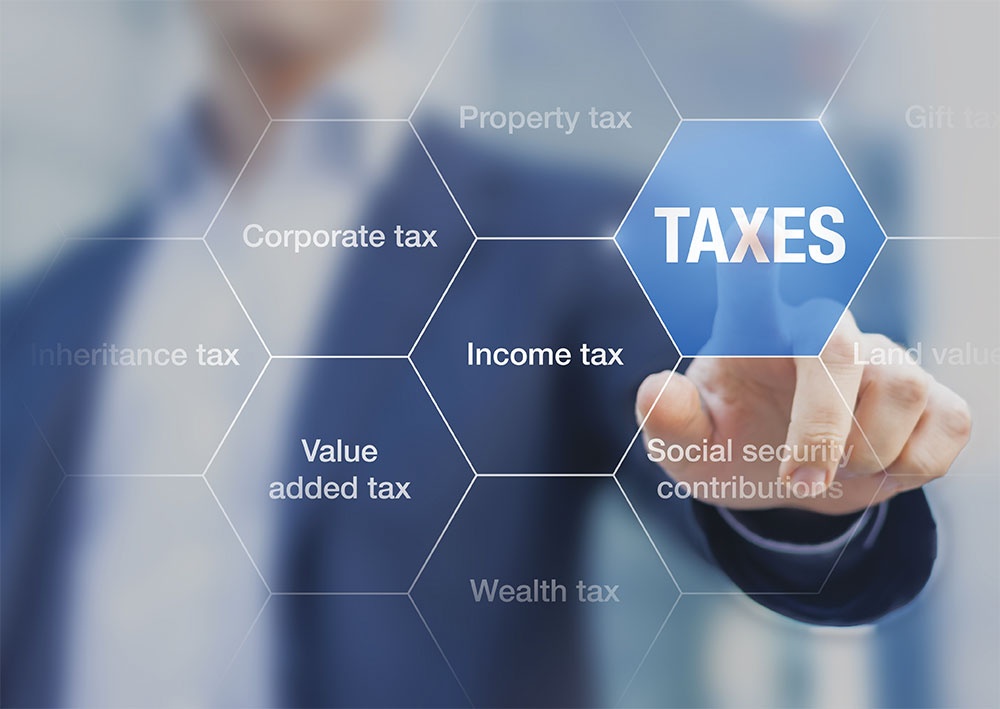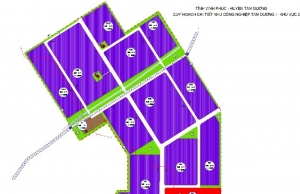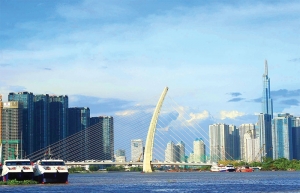Industrial developers eye the effects of upcoming tax regime
 |
| The global minimum tax will be a challenge for Vietnam to ensure continuing major investments, Photo: Shutterstock |
As an investor in industrial zone infrastructure, Nguyen Thanh Phuong, general director of Sao Do Group, shared that improving infrastructure and diversifying facilities are the most important issues right now.
“Increasing more advantages for such zones means increasing the investment attraction in a sustainable way. Tax incentives are just one of the factors for us to evaluate and make decisions. Investors always prioritise a safe and stable destination to ensure the most effective for their projects, preserving capital and increasing profits,” Phuong said
He confirmed that when applying the global minimum tax (GMT), due in many nations from next year, the competitiveness in overseas funding attraction will be seriously impacted.
“However, the government is also taking active steps to prepare countermeasures. From the perspective of infrastructure businesses who are directly affected, it is also necessary to be proactive in the face of this new challenge,” Phuong said.
When the GMT is introduced, competition in attracting foreign investment will depend increasingly on the quality and services provided, since the main attraction factors of Vietnam are tax incentives and cheap labour are increasingly fading.
The GMT is an agreement reached by G7 countries in 2021 to combat tax evasion by multinational corporations. The minimum applied level is 15 per cent, for businesses multinational enterprises with total consolidated revenue of €750 million (equivalent to $816 million) or more in two of the last four consecutive years.
“The tax increase may reduce the attractiveness of the business environment in Vietnam because efforts to attract foreign funding by Vietnam through the exemption and reduction of corporate income tax will be ineffective and Vietnam’s business environment will become less attractive,” said Bui Trang, country director of Cushman & Wakefield Vietnam,
“Industrial real estate will also be affected by this tax because in the past, investment was mainly gained thanks to tax incentives and low labour costs,” Trang added.
Meanwhile, Agustin Redonda from the Switzerland-based Economic Policy Council said that tax incentives are one of the main policy instruments by governments worldwide to beckon investment.
“Yet, despite their prevalence around the world and their high cost in terms of revenue collection, their usefulness and effectiveness in reaching government objectives remain open to question,” Redonda said.
“Now is a good time for the government in Vietnam to take a closer look at the effectiveness of such incentives. Eliminating ineffective incentives and keeping, or even expanding, those that are good value for money is crucial, and several Southeast Asian countries are already doing it,” he added.
One of the expected outcomes of the new deal is that tax competition among countries will decline. But attracting foreign investors will remain paramount to countries’ prosperity.
“It is well established that foreign funding has many benefits for economic development. Foreign enterprises help Vietnam approach the international market, create jobs for highly skilled workers, expose workers to new technologies, and strengthen the management skills of local authorities, improve knowledge of corporate governance and above all, enhance a culture of compliance with laws and rules in line with international practices,” Redonda said.
It is expected that the GMT policy will be applied in Vietnam from fiscal year 2024, in order to limit the fact that many large companies plan to minimise taxes by transferring profits to other tax havens, or transnational digital business activities without a physical presence.
In response to this new challenge, the government established a special working group on the GMT last August to research and propose solutions to the issue.
 | Industrial real estate picture contrasting from north to south While industrial real estate in the north is recording a strong increase in supply, rent, and occupancy rates, the south of the country is enduring reduced rental demand and legislation obstacles. |
 | Industrial real estate increasingly attractive to investors A total of $8.88 billion was in registered foreign investment in Vietnam as of April 20, in which real estate ranked third with nearly $972 million. Truong An Duong, general manager for North Vietnam and Residential at Frasers Property Vietnam, shared methods to lure in more investment to Vietnam's industrial real estate market with VIR's Bich Ngoc. |
 | Prospects pick up within real estate market Real estate liquidity is moving into a positive direction, with investors planning several new rounds of funding. |
What the stars mean:
★ Poor ★ ★ Promising ★★★ Good ★★★★ Very good ★★★★★ Exceptional
 Tag:
Tag:
Related Contents
Latest News
More News
- Construction firms poised for growth on public investment and capital market support (February 11, 2026 | 11:38)
- Mitsubishi acquires Thuan An 1 residential development from PDR (February 09, 2026 | 08:00)
- Frasers Property and GELEX Infrastructure propose new joint venture (February 07, 2026 | 15:00)
- Sun Group led consortium selected as investor for new urban area (February 06, 2026 | 15:20)
- Vietnam breaks into Top 10 countries and regions for LEED outside the US (February 05, 2026 | 17:56)
- Fairmont opens first Vietnam property in Hanoi (February 04, 2026 | 16:09)
- Real estate investment trusts pivotal for long-term success (February 02, 2026 | 11:09)
- Dong Nai experiences shifting expectations and new industrial cycle (January 28, 2026 | 09:00)
- An Phat 5 Industrial Park targets ESG-driven investors in Hai Phong (January 26, 2026 | 08:30)
- Decree opens incentives for green urban development (January 24, 2026 | 11:18)























 Mobile Version
Mobile Version